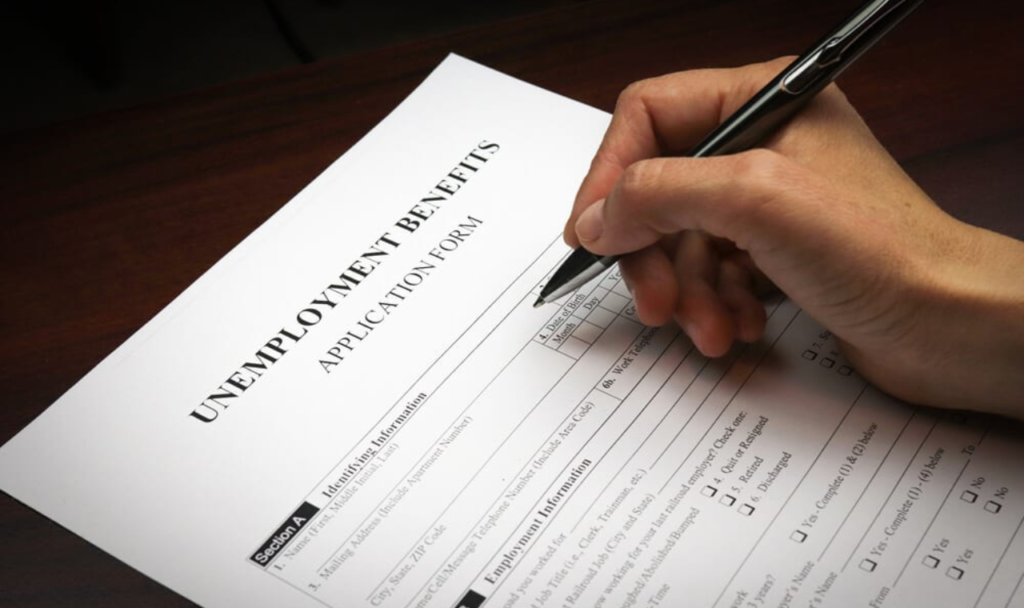Unemployment Insurance (UI) is a crucial safety net for millions of American workers who lose their jobs through no fault of their own. Administered jointly by federal and state governments, UI provides temporary financial assistance while individuals search for new employment. However, many eligible individuals either fail to claim their full benefits or make mistakes that delay payments.
To ensure you receive every dollar you’re entitled to, it’s essential to understand the UI system, eligibility requirements, and best practices for filing a claim. Here’s how you can maximize your benefits and avoid common pitfalls.
1. Apply for Unemployment Benefits Immediately

Timing is everything when it comes to UI. As soon as you lose your job, file a claim with your state’s unemployment office. Waiting too long can result in lost benefits, as many states do not provide retroactive payments for weeks that have passed before your application.
To start your application, visit your state’s unemployment website or the U.S. Department of Labor’s website (dol.gov) for links to each state’s program.
Key Tip: Even if you’re unsure whether you qualify, apply anyway. Eligibility decisions are made by the state agency, not the applicant.
2. Know Your State’s Eligibility Requirements
Each state sets its own rules for UI eligibility, including:
- Minimum earnings or work history requirements
- Reasons for separation from employment
- Work availability and job search requirements
Most states require you to have earned a minimum amount in wages over a designated period (known as the base period). You generally qualify if you lost your job due to layoffs or other reasons beyond your control. However, if you were fired for misconduct or voluntarily quit without “good cause,” your claim may be denied.
3. Provide Accurate Information When Filing
Errors in your application can cause delays or result in denied benefits. Ensure all details match your employer’s records, including:
- Your full employment history for the past 18 months
- Correct reasons for job loss
- Accurate Social Security Number and banking details (if opting for direct deposit)
Misreporting earnings whether intentional or accidental can lead to fraud investigations and repayment penalties.
4. File Your Weekly or Biweekly Certifications on Time
Filing for UI isn’t a one-time process. Most states require claimants to certify their continued eligibility every week or two by submitting a claim update. This involves answering questions about your job search efforts, income, and availability for work.
Missing a deadline could result in delayed or canceled payments. Mark your calendar with filing deadlines, and if possible, set up automatic reminders.
To find your state’s certification process, visit your local state UI agency’s website via Career One Stop.
5. Actively Search for Work and Keep Records
Most states require UI recipients to actively seek employment and may request proof of job searches. Keep records of:
- Applications submitted
- Interviews attended
- Contacts made with potential employers
Failure to meet job search requirements could lead to disqualification from receiving benefits. Check your state’s specific work search policies on USA.gov.

6. Understand Benefit Amounts and Duration
The amount you receive in UI benefits varies by state but is typically based on your prior earnings. Most states offer benefits for up to 26 weeks, though extended benefits may be available during economic downturns.
For example, in 2024, the average weekly benefit across the U.S. ranged from about $235 (Mississippi) to $823 (Massachusetts). Some states offer additional payments if you have dependents.
To check your state’s benefit levels, visit the Center on Budget and Policy Priorities’ UI Benefits Tracker (cbpp.org).
7. Report Any Additional Earnings
If you start earning money from part-time or freelance work while receiving UI, report it immediately to avoid overpayment issues. Many states allow you to earn a certain amount before reducing your UI payments.
Failing to report income can lead to penalties, including repayment of overpaid benefits or disqualification from future claims.
8. Be Aware of Appeals if Denied Benefits
If your claim is denied, don’t panic. You have the right to appeal.
Steps to appeal a denial:
- Review the denial letter carefully: It will explain the reason and provide deadlines for appeals.
- Gather supporting documents: (pay stubs, termination letters, or employer communications).
- File an appeal before the deadline: usually within 10 to 30 days.
- Prepare for a hearing: where you may need to present evidence to a state UI official..
9. Explore Other Financial Assistance Programs
UI benefits may not cover all your expenses. If you need additional help, consider applying for:
- Supplemental Nutrition Assistance Program (SNAP) – Food assistance (snap.gov)
- Medicaid or Affordable Care Act (ACA) Health Plans – Low-cost healthcare (healthcare.gov)
- Rental Assistance Programs – Help with housing costs (hud.gov)
Conclusion
Unemployment Insurance is a crucial financial lifeline, but to get every dollar you’re entitled to, you must act quickly and follow the rules. File immediately, provide accurate information, certify on time, and actively search for work. If denied, appeal promptly, and explore additional aid programs if needed. By staying informed and proactive, you can maximize your benefits and stay financially stable. For more details, visit USA.gov.

Pankaj Kumar is a journalist at Chandigarh X, covering admit cards, recruitment, and government schemes. His articles provide readers with detailed insights into application processes, eligibility, and exam updates.
Outside of work, Pankaj enjoys traveling, fitness, and cricket, often participating in local matches on weekends.



